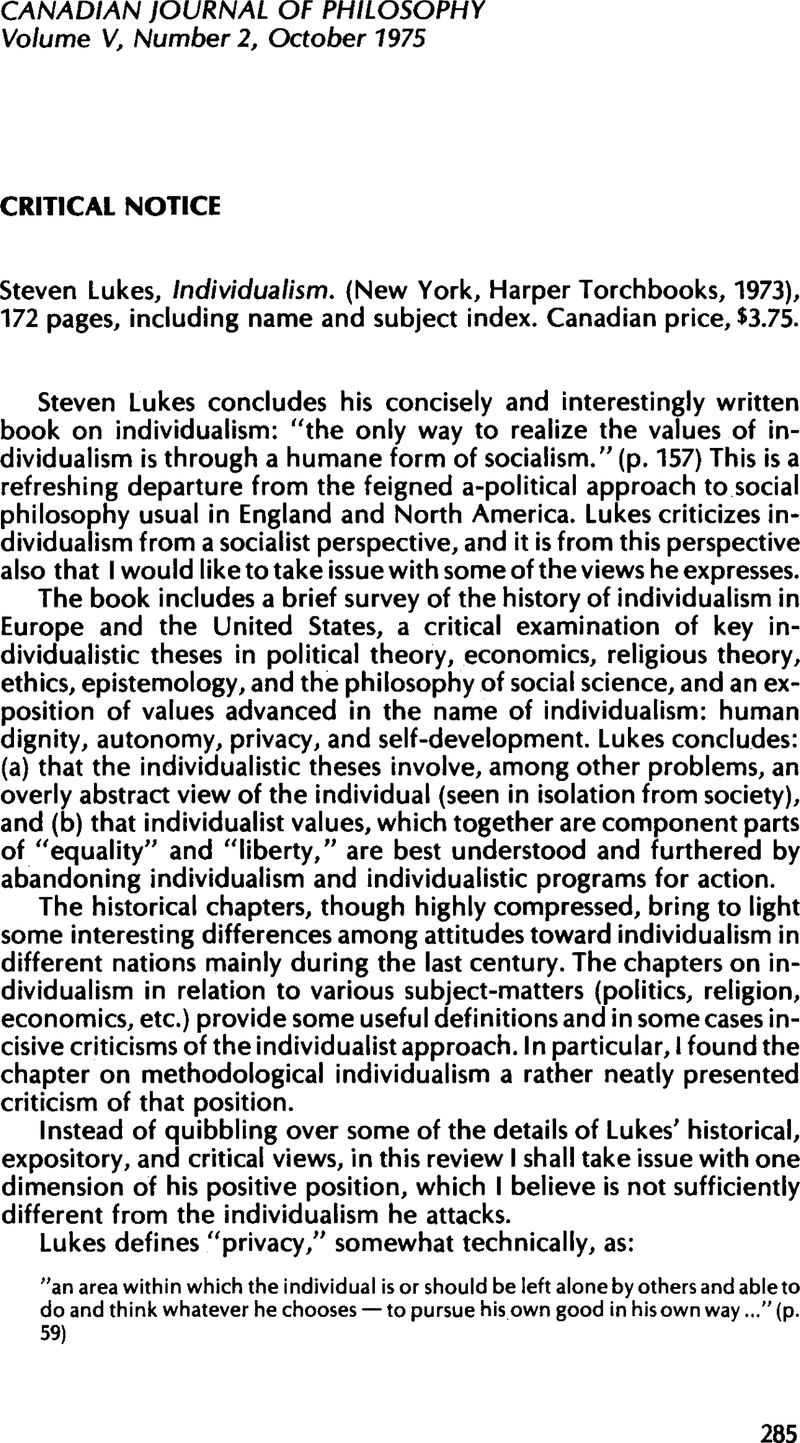No CrossRef data available.
Published online by Cambridge University Press: 01 January 2020

1 Similarly, Lenin, referring in the same speech to the psychological attitude of anti-collectivism;
“If I work this plot of land, I do not care a rap for anybody else; if others starve, all the better, I shall get the more for my grain. If I have a job as a doctor, engineer, teacher, or clerk, I do not care a rap for anybody else. If I toady to and please the powers that be, I may be able to keep my job, and even get on in life and become a bourgeois. A Communist cannot harbour such psychology and such sentiments.” (Ibid., p. 294)
2 Although the topic is too large to go into here, and does not directly relate to Lukes’ comments on privacy, it should be pointed out that in saying these things, Engels does not mean to embrace moral anti-objectivism: “That … there has on the whole been progress in morality, as in all other branches of human knowledge, cannot be doubted.” (Anti-Dühring, p. 105)
3 “Right by its very nature can consist only in the application of an equal standard; but unequal individuals (and they would not be different individuals if they were not unequal) are measurable only by an equal standard insofar as they are brought under an equal point of view, are taken from one definite side only, for instance, in the present case, are regarded only as workers and nothing more is seen in them, everything else being ignored. Further, one worker is married, another not; one has more children than another, and so on and so forth. Thus, with an equal performance of labour, and hence an equal share in the social consumption fund, one will in fact receive more than another, one will be richer than another, and so on. To avoid all these defects, right instead of being equal would have to be unequal.” (Marx, “Critique of the Gotha Programme,” Selected Works, p. 324.)Google Scholar
4 Perhaps this is what Lukes had in mind in referring to “stratification.” Or maybe he was thinking of the widely-held, but to my knowledge never documented, opinion that socialist state officials or Communist Party members constitute a new capitalist class or an economic elite. To make this case, one would have to explain why socialist economic development is so untypical of capitalist economies (without unemployment, etc.), why the absence of the huge income disparities of capitalist societies (some starve, others are millionaires), why socialist state leaders’ salaries, though relatively high, are not the highest in their countries (and nowhere near the personal incomes of capitalists), why in Hungary as in other socialist countries, Communist Party functionaries are paid on the same scales used to ascertain the salaries and wages of non-Communists with the same levels of training and skills, and so on.